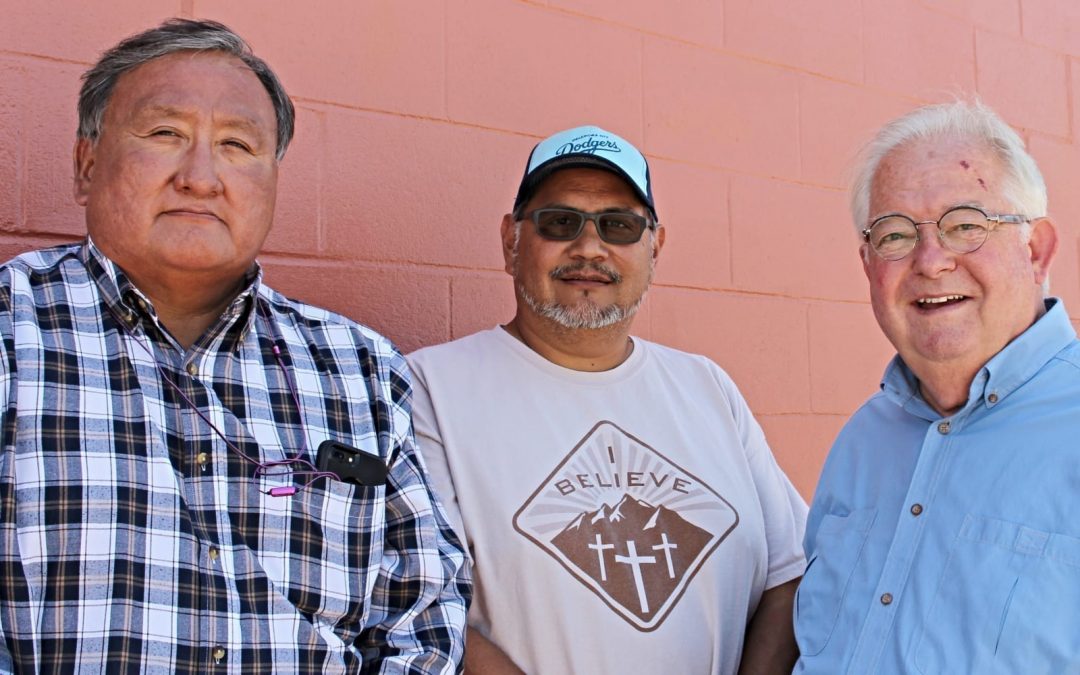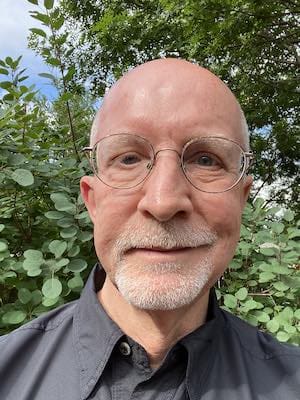A cluster of Native American congregations and the Cooperating Baptist Fellowship of Oklahoma are writing a new script for race relations in the Sooner State.
Churches affiliated with the Oklahoma Indian American Baptist Association and CBF of Oklahoma have brought Native American, African-American and Anglo Baptists closer together. Leaders hope they will write a harmonious story that extends far into the future.
That story describes “a natural partnership,” said Steve Graham, coordinator of CBF of Oklahoma.
The Baptist groups’ mutual commitment to ministry in underserved communities and their passion for binding wounds inflicted by ugly history and decades of neglect provide a strong platform for building enduring bonds, he said.
The partnership supports the ministries of three congregations in western Oklahoma – All Tribes Baptist Church in Geary, Native American Baptist Church in Canton and Watonga Indian Baptist Church in Watonga.
As they work alongside CBF of Oklahoma, they’re reversing a storyline with a sad and painful past.
Quinton Roman Nose, a statewide leader in Indian education and a prominent layman in the Oklahoma Indian American Baptist Association, recounted the story of his great-grandfather, Henry Roman Nose, a legendary Cheyenne chief.
As a young boy, Henry Roman Nose survived the Sand Creek Massacre in southeastern Colorado when the Colorado militia destroyed a Cheyenne-Arapaho village, slaughtering up to 500 people, mostly women and children.
Years later, U.S. troops captured him at Fort Sill, Oklahoma, and transported him to Fort Marion, Florida, and then Carlisle, Pennsylvania, where he endured the forced cultural assimilation of Capt. Richard Henry Pratt, famous for his motto: “Kill the Indian; save the man.”
Along the way, Henry Roman Nose became a Christian, a legacy he passed down to his family back in Oklahoma.
But “kill the Indian; save the man” resonated across those generations and echoes still today, his great-grandson noted.
“It’s applicable to how Christianity presented itself to Indians, especially the Cheyenne-Arapaho,” Quinton Roman Nose explained. “Christianity brought Jesus, but the way they brought it was wrong. The implication was that, to be a Christian, Indians must give up their culture, their language. That didn’t work out well.”
Even today, and even among Christians, many Native Americans often refer to Christianity as “white man’s religion,” he said.
Besides reflecting racism and cultural superiority, “Kill the Indian; save the man” is bad theology, Roman Nose added.
“Jesus didn’t do that. He met people where they were. Look at the Scriptures. He took people’s culture where they were and showed them love and acceptance.”
Roman Nose dreams of – and has spent most of his life working toward – racial reconciliation in the name of Jesus.
“If Jesus is for everybody, why do we have white churches, Indian churches, black churches?” he asked. “If you believe in Jesus Christ, you should have one church.”
Of course, the races’ cultures differ, and that impacts their worship, he acknowledged. The Watonga congregation’s liturgy features a blend of hymns familiar to white churches and also tribal hymns.
“But why are we different – separate?” he wondered.
Baptists in Oklahoma have been trying to bridge that chasm of separateness.
The American Baptist Churches, a traditionally white denomination based in the Northeast, founded the Native American churches in Oklahoma more than a century ago and has provided support for their pastors.
Roman Nose praised Jeffrey Haggray, executive director of the American Baptist Home Mission Societies, for his warmth and inclusion.
But American Baptists have been pulling back their financial support for the past decade, he reported.
That’s why a grant from the New Baptist Covenant – a broad movement of racial inclusion – has been important for building relationships in Oklahoma.
Most NBC grants support church-to-church endeavors, Graham explained. But in Oklahoma, the grant covers relationships between the American Indian Association, CBF of Oklahoma and the Progressive National Baptist Convention, an African-American group.
It’s also why the blossoming partnership between the American Indian Association and CBF of Oklahoma is so vital, Roman Nose stressed.
“If local churches wanted to help (the Indian congregations), they could. But they didn’t ask; they didn’t volunteer,” he said. “Steve volunteered. He’s from western Oklahoma, but he’s unique. We don’t usually have relationships with white pastors.”
Graham deflected the compliment. “I grew up in Oklahoma, and Quinton is the first Native American deacon I ever had coffee with,” he admitted.
But conversations over coffee spawned a rich partnership that has spanned six years and counting.
The partnership has been life-giving for All Tribes Baptist Church in Geary, Pastor Waylan Upchego reported.
He was chief of police in the community seven years, and he and his wife, Nikole, served as bivocational youth ministers in an Assembly of God church before they felt divine leadership to reopen the Baptist congregation.
They encountered a mess. The church met in a decrepit building across the street from the elementary school. It shuttered about six years ago, when the former pastor retired, and the members felt they couldn’t go on.
“When we walked in, we saw a vision,” Upchego said, agreeing they also saw run-down facilities and filthy mountains of trash. “We didn’t know how we were going to do it, but Quinton introduced me to Steve.”
That led to help from CBF congregations. Last summer, a team of 75 students came from Trinity Baptist Church in Raleigh, North Carolina, and worked in all three western Oklahoma churches. In Geary, they opened up the building and removed the trash.
This summer, two mission teams from Kentucky are helping. Youth from St. Matthews Baptist Church in Louisville continued the cleaning process, knocked out walls and also painted the outside.
Soon, craftspeople from First Baptist Church in Middleton will hang sheetrock.
All Tribes Church, which has been meeting in a community center, soon will come back home.
From that base, the congregation hopes to honor its Baptist partnership by helping others, Upchego said.
“The relationship with CBF – right now, because of our position, we’re accepting help. But we want a mutual relationship,” he noted. “You helped us get back on our feet. So now, what can we do?”
Perhaps soon the Native American churches will conduct an associational mission trip to help other churches elsewhere, he mused.
“The relationship can only develop and get stronger,” he said. “Hand-in-hand. Mutual.”
“I like the word ‘partner,’” Graham replied. “We’re better for it. And I consider this partnership one of the defining relationships for CBF of Oklahoma.”
Founding Coordinator (retired) of Fellowship Southwest, an intentionally ecumenical, multicultural, multiracial Cooperative Baptist Fellowship network, and a member of Good Faith Media’s strategic advisory board for news and opinion.


